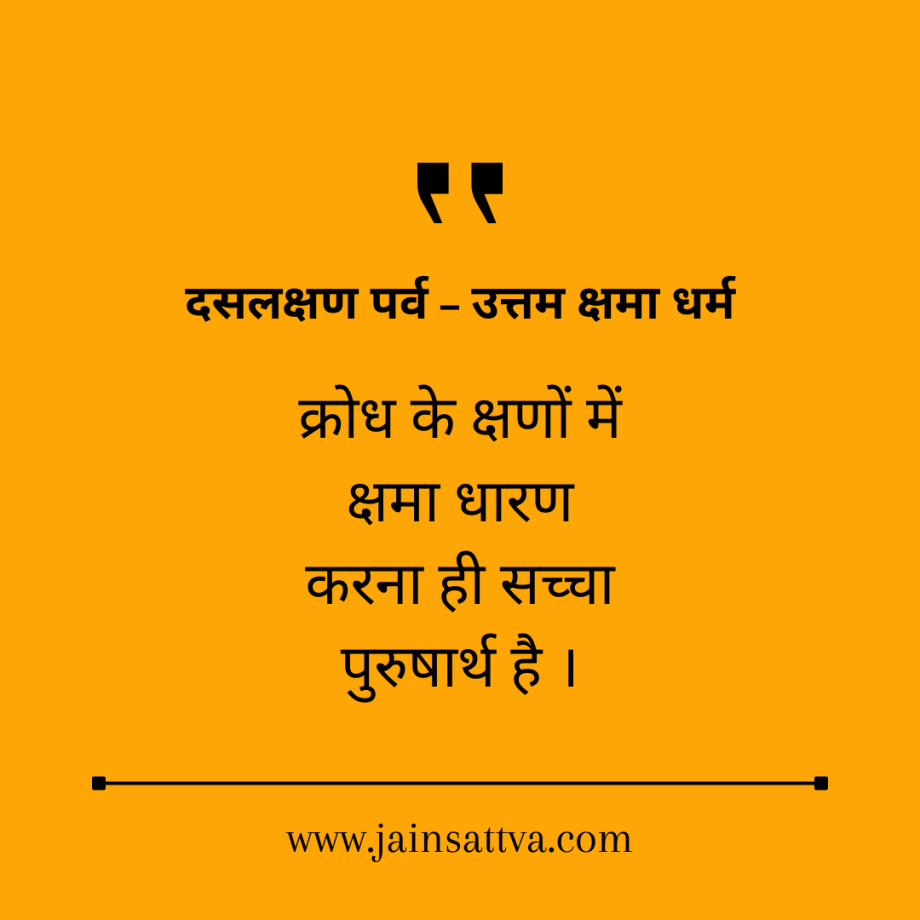Introduction: Embracing Forgiveness in a Turbulent World
In today’s fast-paced world, misunderstandings and conflicts are common. Holding onto anger and resentment can lead to personal turmoil and strained relationships. Jainism offers a profound solution through the practice of Uttam Kshama, or supreme forgiveness. This principle encourages individuals to let go of negative emotions, promoting inner peace and harmonious living.
Understanding Uttam Kshama: The Essence of Forgiveness
Uttam Kshama, translating to “supreme forgiveness,” is the first of the ten virtues (Dashlakshana) in Jainism. It emphasizes the importance of forgiving others and oneself, fostering a compassionate and tolerant mindset. This virtue is not just about pardoning others but also about cultivating patience and understanding in the face of adversity.
The Role of Uttam Kshama in Dashlakshana Parva
Dashlakshana Parva is a significant Jain festival observed over ten days, each dedicated to one of the ten virtues. Uttam Kshama is celebrated on the first day, setting the tone for introspection and spiritual growth. During this period, devotees engage in self-reflection, seeking forgiveness for past mistakes and resolving to practice tolerance and compassion.
The Significance of Forgiveness in Jain Philosophy
In Jainism, forgiveness is more than a moral obligation; it’s a path to spiritual liberation. By forgiving others, individuals release themselves from the cycle of anger and hatred, reducing karmic bondage. This practice aligns with the core Jain principle of Ahimsa (non-violence), as harboring ill feelings is considered a form of subtle violence.
Practicing Uttam Kshama in Daily Life
Incorporating Uttam Kshama into daily life involves conscious efforts to:
- Let go of grudges: Recognize that holding onto resentment harms oneself more than others.
- Empathize with others: Understand that everyone has their struggles, which may influence their actions.
- Seek forgiveness: Acknowledge one’s mistakes and make amends sincerely.
- Cultivate patience: Respond to provocations with calmness and understanding.
Uttam Kshama During Paryushana and Samvatsari
Paryushana is an important Jain festival focusing on self-purification and spiritual upliftment. The final day, known as Samvatsari, is dedicated to seeking and granting forgiveness. On this day, Jains utter the phrase “Micchami Dukkadam,” meaning “I seek forgiveness for any harm caused knowingly or unknowingly.” This practice reinforces the value of Uttam Kshama, promoting reconciliation and harmony within the community.
The Impact of Uttam Kshama on Personal Growth
Embracing Uttam Kshama leads to numerous personal benefits:
- Emotional well-being: Releasing negative emotions reduces stress and promotes mental peace.
- Improved relationships: Forgiveness fosters trust and strengthens bonds with others.
- Spiritual advancement: Letting go of anger and resentment aligns with Jain principles, aiding in the journey toward liberation.
Conclusion: The Transformative Power of Forgiveness
Uttam Kshama is a cornerstone of Jain ethics, emphasizing the transformative power of forgiveness. By practicing this virtue, individuals not only enhance their spiritual journey but also contribute to a more compassionate and harmonious society. In a world rife with conflicts, embracing Uttam Kshama offers a path to inner peace and collective well-being.
